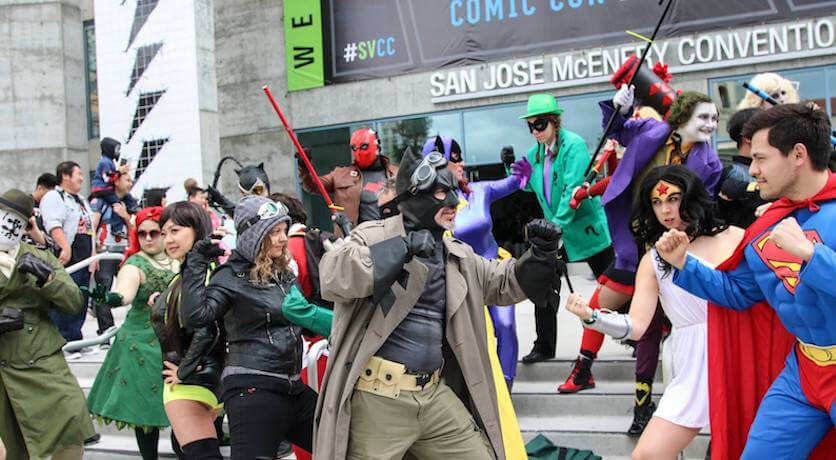As comic and gaming enthusiasts celebrated Salt Lake Comic Con at the Salt Palace Convention Center on Sept. 21–23, the organizers of the event had some serious business on their minds. Daniel Farr and Bryan Brandenburg, the minds behind Utah’s biggest comic show, have been in a legal battle with San Diego Comic-Con over trademark violation. In 2014, the organizers of the San Diego event sent Farr and Brandenburg a cease-and-desist letter over the term “comic con”, but the Utah show stuck with the name.
The entire legal debacle seems a bit surprising to me. After all, there are comic conventions that use some form of “comic con” in states across the country. From Saratoga Comic Con to Los Angeles Comic Con and seemingly everywhere in between, attendees who are interested in dressing up as their favorite pop-culture characters don’t have to search far for opportunities. With so many events, can one entity really own the rights to the term “comic con”? Apparently so.
“If the U.S. PTO [Patent Trademark Office] allowed the trademark for ‘Comic Con,’ then presumably they did not feel it was generic, despite the many other times it is used in other trademarks and non-trademarked [conventions],” Tyra Hilliard, Ph.D., J.D., CMP, said in an interview. “And the beauty of a federal trademark is that it puts the whole country and international countries that have agreed on notice that the mark is owned, in this case by San Diego Comic Convention Corporation.”
However, Hilliard added that Salt Lake’s organizers will have some weight on their side when the case goes to a jury later this year. “If the jury finds in San Diego’s favor, it only means that future comic con owners could file trademark applications that exclude the rights to the words ‘Comic Con’ alone,” Hilliard said. “In fact, Salt Lake’s trademark filing in 2014 does just that, saying, ‘No claim is made to the exclusive right to use “comic con” apart from the mark as shown.’”
“This doesn’t hurt Salt Lake’s case, in my opinion,” Hilliard added. “In fact, it is consistent with their claim that those words are generic — just as no one can claim ownership of ‘the,’ ‘and,’ or even ‘hotel.’”
How complicated can a courtroom battle over conventions be? The full opinion from U.S. District Judge Anthony Battaglia allowing San Diego Comic-Con’s lawsuit to proceed clocks in at 32 pages. Now, it will be up to a jury to wade through the arguments from each side. If San Diego wins, the dozens of other comic-related conventions may need to turn the page to a new brand, too.
Interested in more legal insights from Tyra Hilliard? Check out “Why the ADA Should Be Part of Your F&B Planning.”

